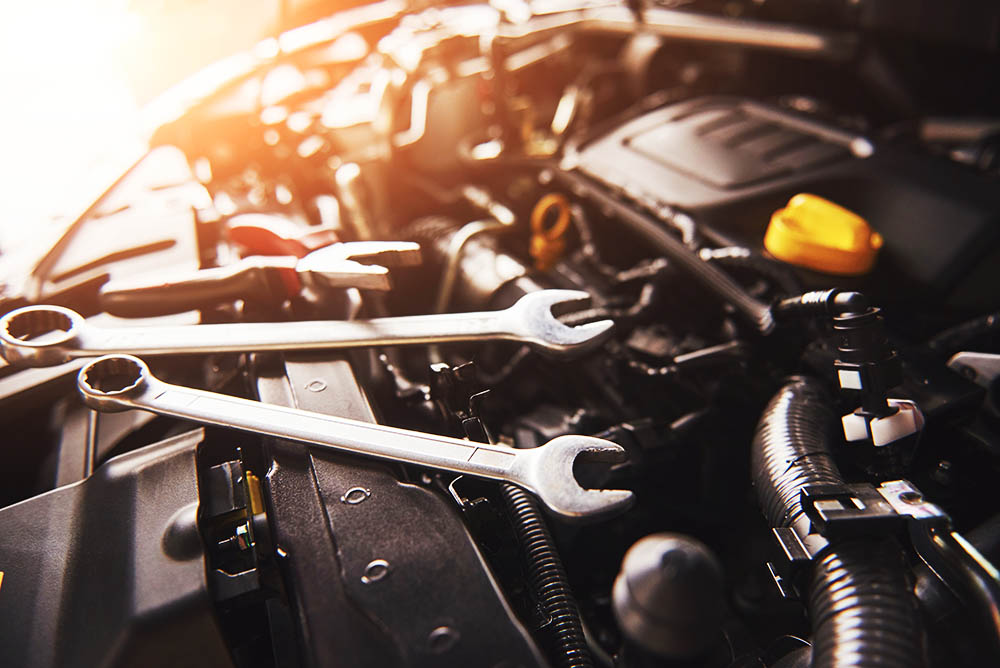Your engine is the heart of your vehicle, and like any good heart, it should be treated with care to keep it running smoothly. One of the most important aspects of engine maintenance is the fuel system. Your fuel system ensures that enough fuel is delivered to your engine to keep it running efficiently. However, as time goes on, your fuel system can become clogged or damaged, leading to decreased engine performance and lower gas mileage. Upgrading your fuel system can help you get the most out of your engine, leading to better performance and improved gas mileage.
The Components of Your Fuel System
First, it’s important to understand the various components of your fuel system. The fuel filter is a component that ensures clean fuel is delivered to your engine. The fuel pump is responsible for delivering fuel from the gas tank to the engine, while the fuel injector sprays fuel into the engine cylinders to be combusted. The fuel pressure regulator ensures the right amount of fuel is delivered to the engine, while the fuel tank stores the fuel until it is needed. All of these components work together to ensure that your engine gets the fuel it needs to run smoothly.
The Benefits of Upgrading Your Fuel System
Upgrading your fuel system can provide a range of benefits, including increased horsepower, improved fuel efficiency, and smoother acceleration. A new fuel system can also help prevent issues like rough idling or stalling. Here are some specific benefits you’ll enjoy after upgrading your fuel system.
Increased Horsepower
Upgrading your fuel system can help your engine produce more power by ensuring that it is receiving the right amount of fuel at the right time. Modern fuel systems use precise fuel injection systems that spray fuel directly into the engine cylinders, synchronizing its delivery with the movement of the engine. This increases combustion efficiency, leading to more horsepower and torque.
Improved Fuel Efficiency
By upgrading your fuel system, you can also improve your vehicle’s fuel efficiency. A new fuel system can deliver fuel more efficiently, which can mean you’ll get more miles out of each tank of gas. This will help you save money on gas costs and reduce the environmental impact of your vehicle.
Smooth Acceleration
If you’ve noticed that your vehicle’s acceleration is jerky or sluggish, it may be time for a fuel system upgrade. A new fuel system can ensure that fuel is delivered more smoothly and reliably, leading to smoother acceleration and a more enjoyable driving experience.
When to Upgrade Your Fuel System
Now that you know the benefits of upgrading your fuel system, it’s important to know when to do it. Here are some common signs that it’s time for a fuel system upgrade.
Poor Gas Mileage
If you’ve noticed that you’re getting fewer miles out of each gallon of gas, it may be time to consider a fuel system upgrade. A clogged or damaged fuel system can prevent your engine from getting the fuel it needs, leading to lower fuel efficiency.
Engine Misfires
If your engine is misfiring, it may be a sign that your fuel system is clogged or damaged. A new fuel system can provide the right amount of fuel to the engine cylinders, reducing the risk of misfires.
Rough Idling
If your engine is idling rough, it may be time for a fuel system upgrade. A new fuel system can ensure that fuel is delivered smoothly, helping to reduce rough idling and improve engine performance.
Tips for Upgrading Your Fuel System
If you’ve decided to upgrade your fuel system, it’s important to do it right. Here are some tips to follow when upgrading your fuel system.
Choose the Right Fuel System
There are many different types of fuel systems available, so it’s important to choose the right one for your vehicle. Consider factors like your vehicle’s make and model, as well as your driving habits and goals.
Get Professional Installation
While it may be tempting to try to install your new fuel system yourself, it’s always best to get professional installation. A professional technician will ensure that your new fuel system is installed properly and safely, reducing the risk of issues down the line.
Maintain Your Fuel System
Once your new fuel system is installed, it’s important to maintain it properly. This means scheduling regular fuel system maintenance, including fuel filter changes, fuel pump inspections, and fuel injector cleanings.
Conclusion
Upgrading your fuel system can provide a range of benefits, from improved horsepower and fuel efficiency to smoother acceleration and reduced engine issues. If you’re experiencing issues with your vehicle’s fuel system, or if you’re simply looking for ways to improve its performance, consider upgrading your fuel system. With the right fuel system, you can keep your engine running smoothly for years to come.
